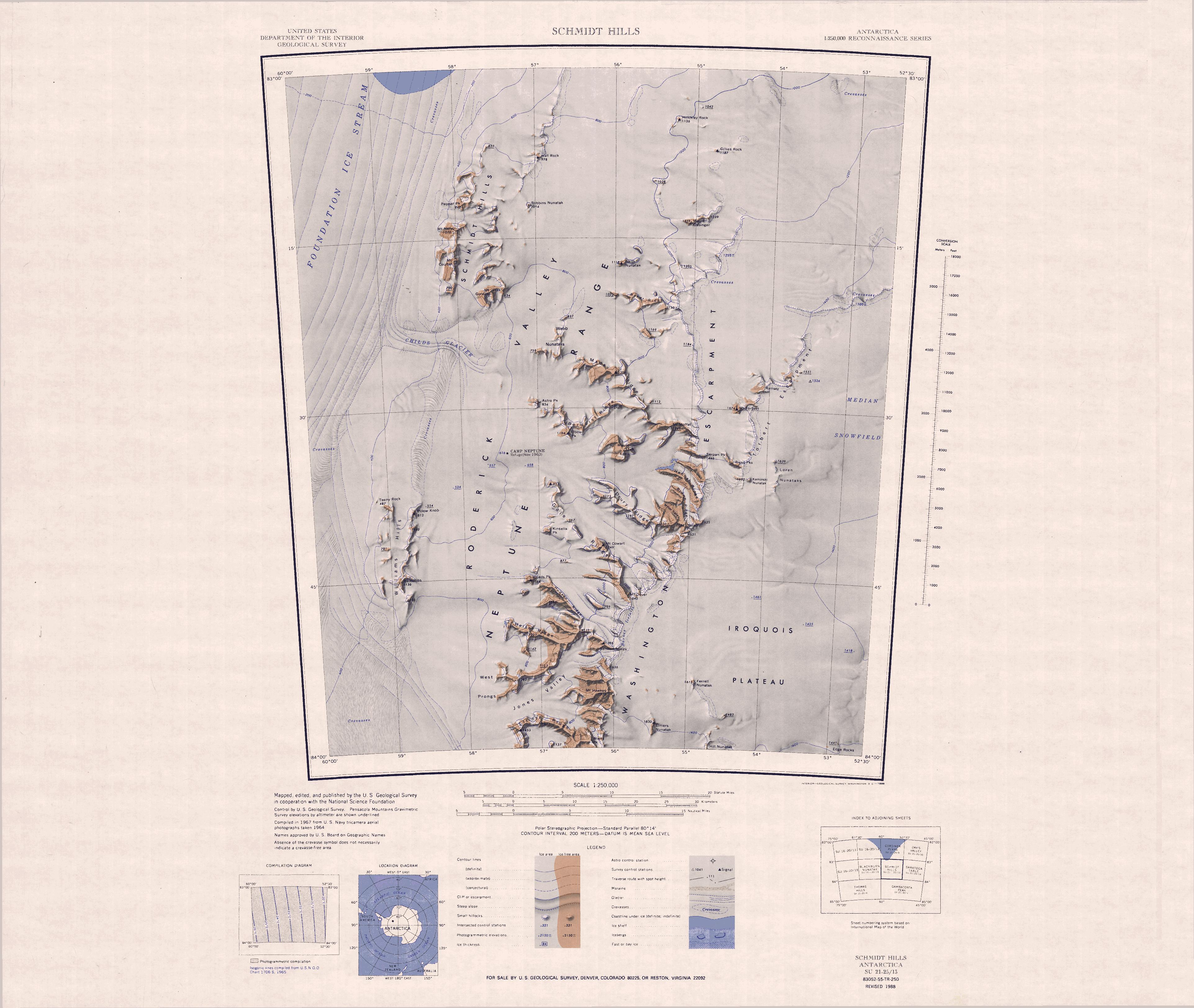Nelson Peak on:
[Wikipedia]
[Google]
[Amazon]
Nelson Peak () is a peak in
 Nelson Peak is towards the center of the Washington Escarpment, west of the Iroquois Plateau and east of the Roderick Valley.
It is north of Mount Dover and south of Mount Moffat.
The Drury Ridge extends west from Nelson Peak, separated by the Miller Valley from Brown Ridge, which extends north from the peak.
Hannah Ridge is just north of Brown Ridge.
Nelson Peak is towards the center of the Washington Escarpment, west of the Iroquois Plateau and east of the Roderick Valley.
It is north of Mount Dover and south of Mount Moffat.
The Drury Ridge extends west from Nelson Peak, separated by the Miller Valley from Brown Ridge, which extends north from the peak.
Hannah Ridge is just north of Brown Ridge.
Antarctica
Antarctica () is Earth's southernmost and least-populated continent. Situated almost entirely south of the Antarctic Circle and surrounded by the Southern Ocean (also known as the Antarctic Ocean), it contains the geographic South Pole. ...
, standing at the eastern end of Drury Ridge and Brown Ridge where the two ridges abut Washington Escarpment
The Neptune Range () is a mountain range, long, lying west-southwest of Forrestal Range in the central part of the Pensacola Mountains, Antarctica.
The range comprises Washington Escarpment with its associated ridges, valleys and peaks, the Ir ...
, in the Neptune Range, Pensacola Mountains
The Pensacola Mountains () are a large group of mountain ranges and peaks that extend in a northeast–southwest direction in the Transantarctic Mountains System, Queen Elizabeth Land region of Antarctica.
They comprise the Argentina Range, Forre ...
.
Exploration and name
Nelson Peak was mapped by theUnited States Geological Survey
The United States Geological Survey (USGS), founded as the Geological Survey, is an agency of the U.S. Department of the Interior whose work spans the disciplines of biology, geography, geology, and hydrology. The agency was founded on Mar ...
(USGS) from surveys and United States Navy
The United States Navy (USN) is the naval warfare, maritime military branch, service branch of the United States Department of Defense. It is the world's most powerful navy with the largest Displacement (ship), displacement, at 4.5 millio ...
air photographs from 1956 to 1966.
It was named by the United States Advisory Committee on Antarctic Names
The Advisory Committee on Antarctic Names (ACAN or US-ACAN) is an advisory committee of the United States Board on Geographic Names responsible for recommending commemorative names for features in Antarctica.
History
The committee was established ...
(US-ACAN) for Willis H. Nelson, a geologist with the Neptune Range field party of 1963–64.
Location
 Nelson Peak is towards the center of the Washington Escarpment, west of the Iroquois Plateau and east of the Roderick Valley.
It is north of Mount Dover and south of Mount Moffat.
The Drury Ridge extends west from Nelson Peak, separated by the Miller Valley from Brown Ridge, which extends north from the peak.
Hannah Ridge is just north of Brown Ridge.
Nelson Peak is towards the center of the Washington Escarpment, west of the Iroquois Plateau and east of the Roderick Valley.
It is north of Mount Dover and south of Mount Moffat.
The Drury Ridge extends west from Nelson Peak, separated by the Miller Valley from Brown Ridge, which extends north from the peak.
Hannah Ridge is just north of Brown Ridge.
Nearby features
Drury Ridge
. A mainly snow-covered ridge, long, extending west from Nelson Peak. Mapped by USGS from surveys and United States Navy air photos, 1956-66. Named by US-ACAN for David L. Drury, meteorologist at Ellsworth Station summer 1959-60, winter 1961.Miller Valley
. A small ice-free valley between Drury Ridge and Brown Ridge. Mapped by USGS from surveys and United States Navy air photos, 1956-66. Named by US-ACAN for Lieutenant Donald R. Miller, LC-47 pilot with United States Navy Squadron VX-6, who flew logistical support for the Neptune Range field party, 1963-64.Brown Ridge
. A bare rock ridge, long, extending north-northwest from Nelson Peak. Mapped by USGS from surveys and United States Navy air photos, 1955-66. Named by US-ACAN for Robert D. Brown, geologist with the Patuxent Range field party, 1962-63.Hannah Ridge
. A narrow, arc-shaped rock ridge, long, extending westward from Washington Escarpment just north of Brown Ridge. Mapped by USGS from surveys and United States Navy air photos, 1956-66. Named by US-ACAN for Edward L. Hannah, aviation structural mechanic at Ellsworth Station, winter 1958.References
Sources
* * *{{Include-USGov , agency=United States Geological Survey Mountains of Queen Elizabeth Land Pensacola Mountains